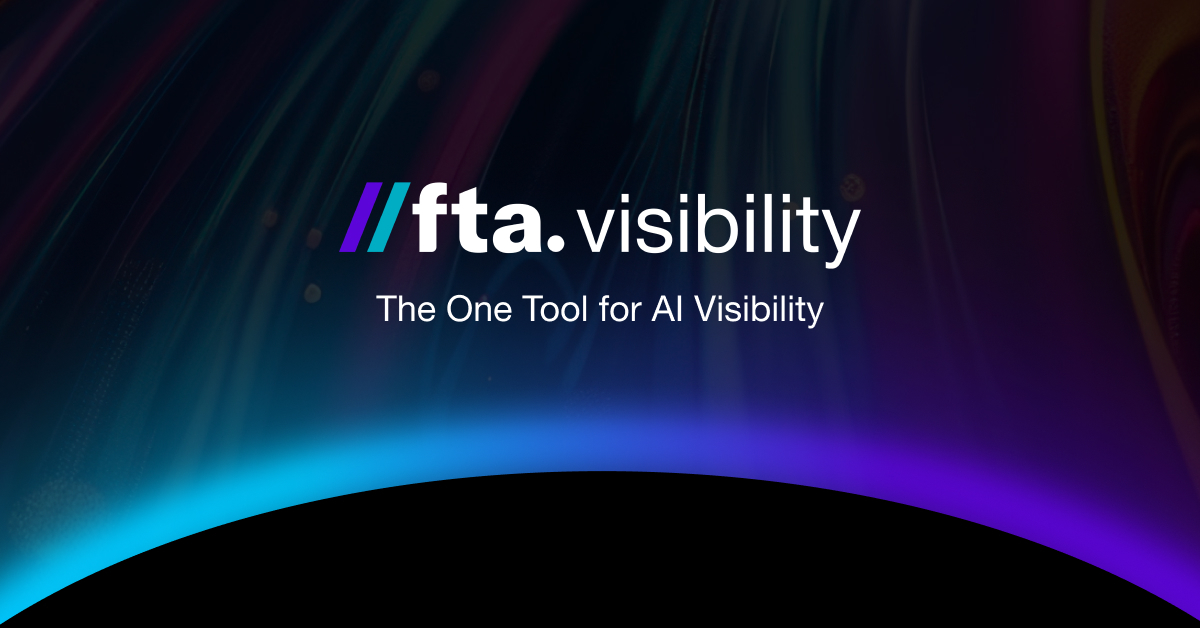Google Still Dominates: What Real Data Shows About SEO, GEO, and AI Search in 2025
We are in the middle of the most profound shift in search since the web was born.
Marketing leaders feel the pressure as organic traffic declines, generative summaries answer questions within the results page, privacy laws reshape data collection, and competitors are automating every single operation with AI.
In this blog, we break down what the data really shows about search today, why Google still dominates, how generative AI affects behaviour, and what chunk optimization means for your content.
Why Google Still Rules the Search Landscape?
- Google controls over 90% of global search traffic, handles 373 times more queries than ChatGPT, and now shapes half of all results with AI Overviews, showcasing its dominance even as zero-click searches rise.
- Statcounter’s July 2025 report shows Google controlling 89.57% of the worldwide search engine market share, with Bing at 4.02%, Yandex at 2.19%, Yahoo! at 1.49%, and DuckDuckGo at 0.95%.
- Ahrefs’ review of top search engines notes that Google’s share has slipped from 91.47% in January 2024, but it still dwarfs all rivals.
- A HubSpot marketing statistics roundup adds that Google holds 93.9 % of the global mobile search market.
- Semrush estimates the platform processes 9.5 million searches per minute, powering over 5 trillion queries each year.
The chart below visualises the current state of the search engine market worldwide.
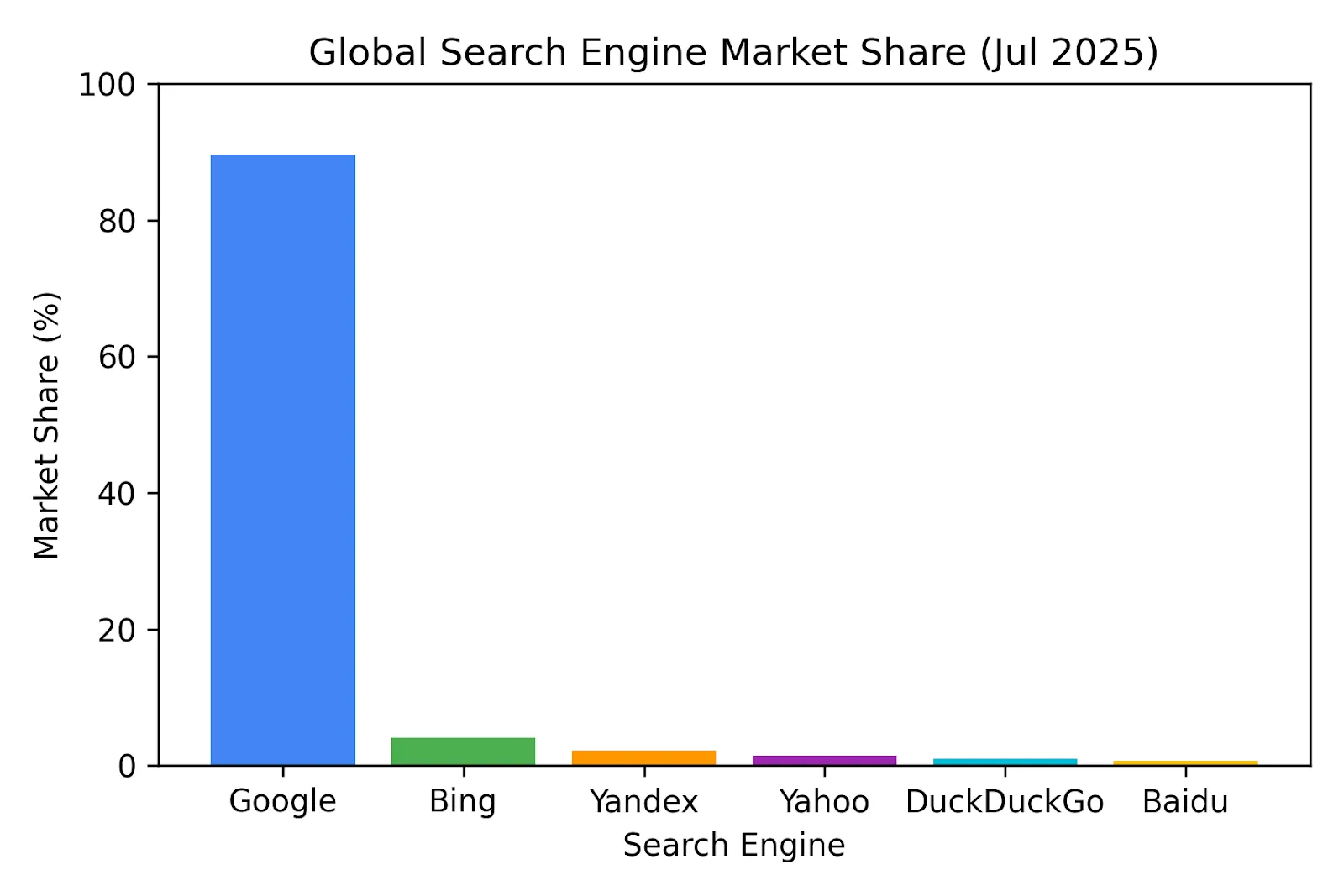
Even if Google’s share dips a few points, it remains the primary discovery channel. An SEO strategy that ignores Google is not a strategy.
Search Behaviour & Marketing Priorties
- Search remains one of the most influential channels for discovery.
- According to HubSpot’s 2025 report, 32.9 % of internet users aged 16+ discover new brands and services via search engines.
- Marketers know this: 29 % list SEO as a top trend, and 39% say on‑page optimization is their most important tactic.
- Mobile dominates, with Gen Z leading at 80%, primarily searching on mobile, followed by Millennials at 62% and Gen X at 66%.
- People’s massive trust on AI: 75 % of marketers believe AI‑enabled search will positively impact their blogs, and 68 % expect more traffic
Key actions you need to take to rank in the top SERP results:
· Optimise for mobile: mobile‑first indexing is now complete. Ensure that pages load quickly and render correctly on all screen sizes.
· Invest in on‑page SEO: meta tags, structured data and internal linking remain foundational.
· Monitor AI‑driven SERP features: features like people‑also‑ask and local packs still drive significant traffic when optimized.
The Rise of AI Overviews and AI Search
- Google launched AI Overviews in 2024, and adoption has been rapid.
- Semrush found that by March 2025, AI Overviews appeared for 13.14 % of all Google searches – double the 6.49 % observed in January.
- Ahrefs’ data shows that the feature appears in 16% of all search results in the US and that 54.61% of all Google searches globally now display AI Overviews.
- Google’s own blog notes that AI Overviews has become one of the most successful launches in Search’s history, driving over a 10% increase in search usage for queries that display an AI Overview.
- The average AI Overview cites around five sources and surfaces some sources that are not already on page 1.
To visualise this growth, we plotted the share of queries triggering AI Overviews over 2025.
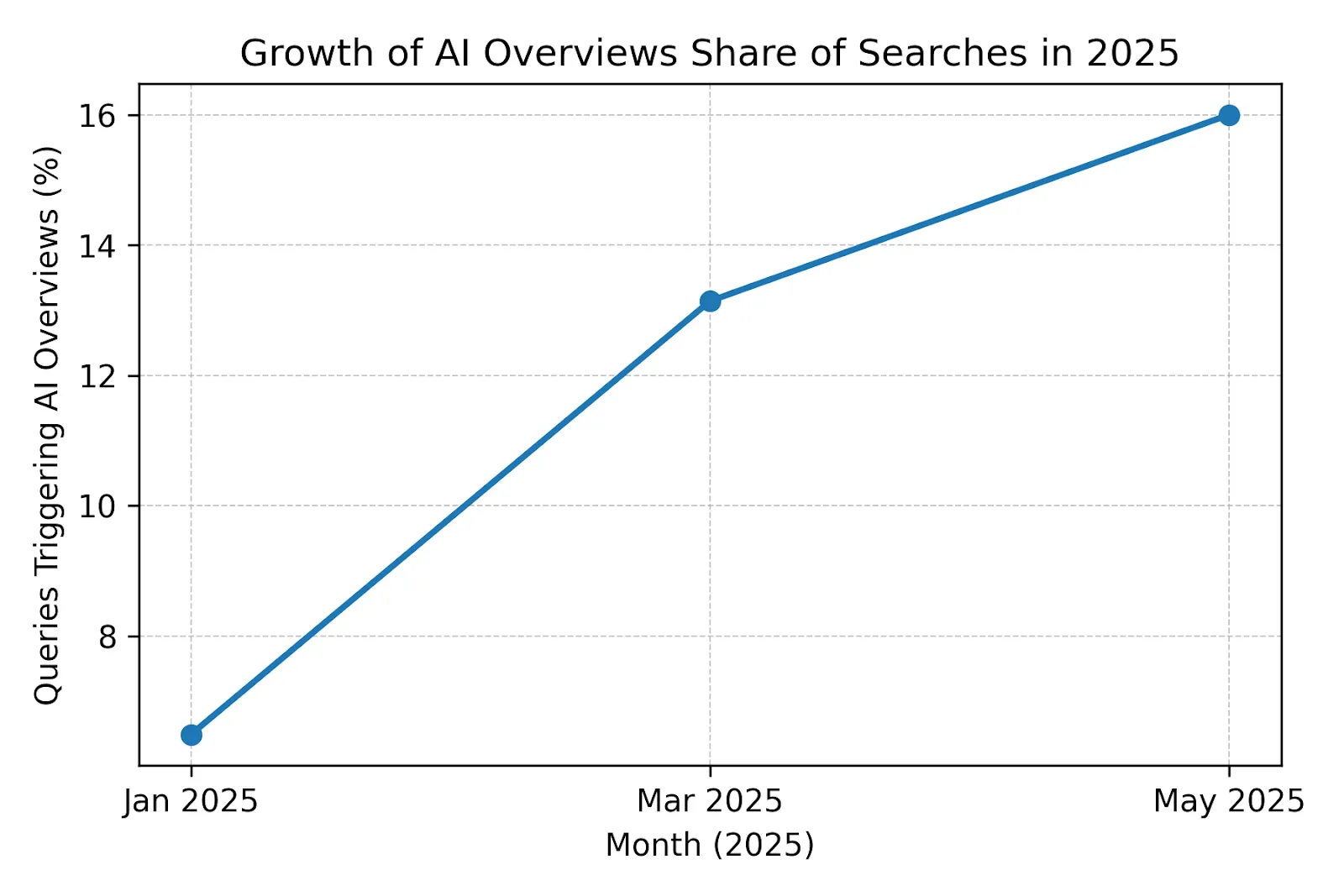
What this means: Search results pages increasingly start with an AI‑generated snapshot. Ranking first is no longer the only way to earn visibility – being included as a cited source in the generative overview becomes essential.
Optimise content “chunks” that answer specific questions clearly so Google can easily summarise and cite them.
How AI Overviews Affect Clicks and CTR
Not everyone loves AI Overviews.
Analysis from Pew Research (based on data from 900 US adults) found that 58% of participants encountered an AI summary during March 2025 searches, and these users were less likely to click on links compared with those who did not see an AI summary.
Ahrefs' large-scale study of 300,000 keywords shows that the presence of an AI Overview reduces clicks by 34.5%.
Another Ahrefs experiment, comparing March 2024 with March 2025, found that the average click-through rate (CTR) for top-ranking informational keywords dropped from 0.056 to 0.031 without AI Overviews and from 0.073 to 0.026 for keywords that triggered AI Overviews.

The chart below illustrates how AI Overviews affect CTR at the top position.
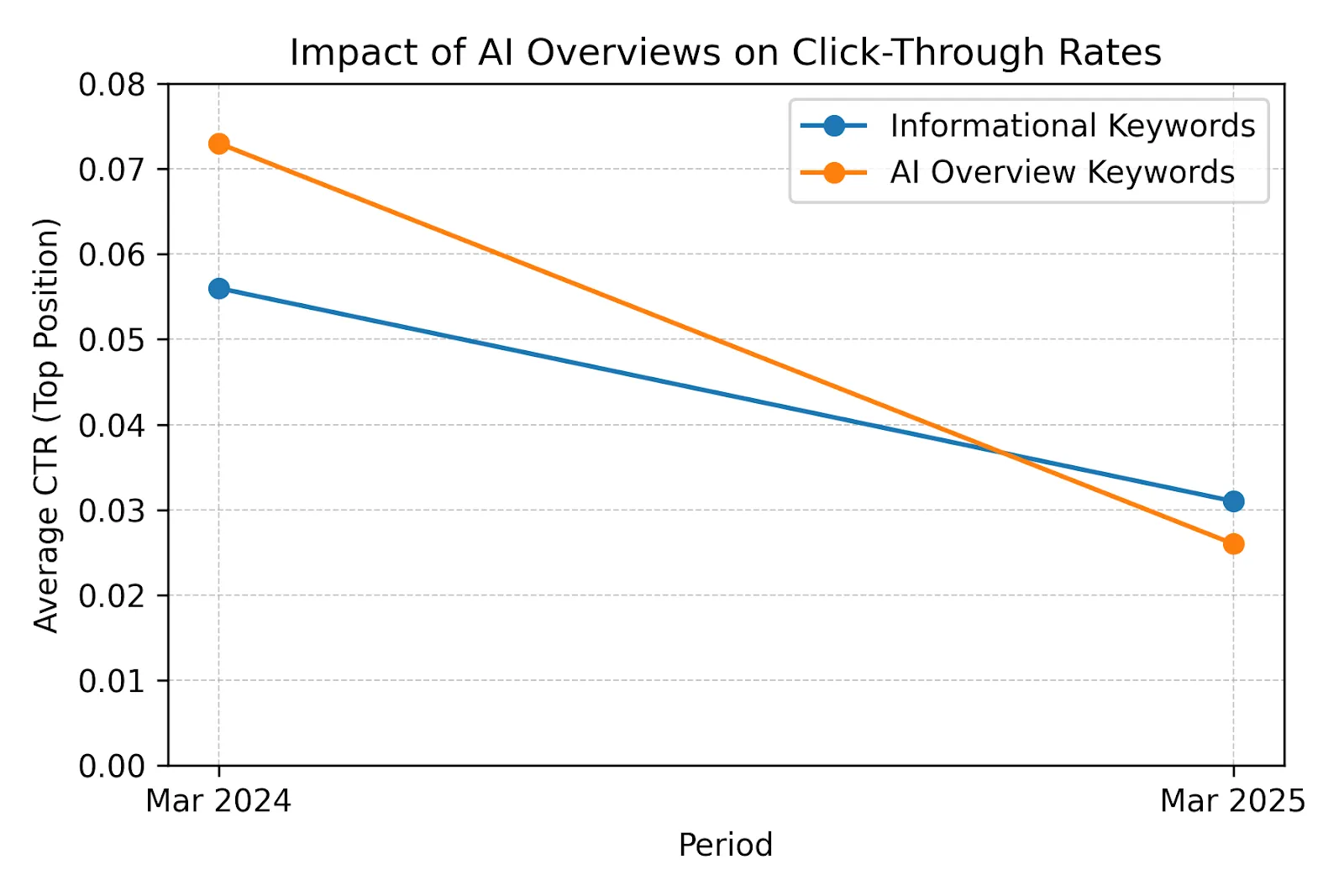
Other notable data points:
- AI Overviews now reach over 1.5 billion users per month, roughly 26 % of all internet users.
- 26% of brands have zero mentions in AI Overviews, while the top 50 domains account for 28.9% of all citations.
- Generative summaries aren’t yet heavily monetised – 71.67% of AI Overview results show no CPC data.
Here is a table comparing Traditional Search with AI Search (AI Overview + AI Mode) on various factors that influence ranking in the SERPs.
Implications for marketers:
- Prepare for AI traffic: Even modest traffic from AI search may be more valuable than equivalent organic traffic.
- Watch Search Console updates: AI Mode impressions and clicks are now included in Search Console reports; monitor these separately to assess performance.
- Leverage AI optimization tools: Tools like Semrush’s AI SEO Toolkit can evaluate your visibility in LLMs and suggest prompts.

For SEO leaders, this data signals that AI is an indispensable tool rather than a novelty.
Invest in AI‑assisted workflows to brainstorm topics, generate outlines, and accelerate research, while maintaining a human editorial voice.
Chunk Optimization: Making Your Content AI‑Friendly
Traditional SEO focuses on optimizing entire pages. Generative AI surfaces specific chunks, sections of content that answer a question or address a need.
To appear in AI Overviews or AI Mode, your content must be organised into easily digestible pieces that Google’s algorithms can cite.
Here’s how to optimise for chunks:
- Use descriptive headings: break long pages into sections with H2/H3 headings that mirror search queries.
- Answer a single question per section: start each section with a concise definition or answer, then elaborate in the remaining sentences.
- Add context around data points: Generative models prefer citing sources that explain numbers rather than simply listing figures.
- Incorporate relevant schema markup: how‑to, FAQ, and product schemas make it easier for search engines to identify discrete chunks.
- Maintain clear internal linking: link related sections within your site so crawlers understand the relationship between concepts.
GEO Considerations: Local & Multilingual Search
Google’s market share varies regionally.
For example, Yandex commands more share in Russia and Baidu dominates in China.
Geo‑targeted content and localized schema remain critical.
Additionally, AI Overviews are available in dozens of countries across the Americas, Asia‑Pacific and EMEA.
If your audience spans regions, optimise pages for local languages and make sure content chunks include location‑specific information.
Caselet: How Won in AI‑Driven Search
Let’s imagine a mid‑sized e‑commerce brand, AthleTech, selling running gear. In early 2025, the team noticed a 20% decline in clicks from Google, despite holding top organic positions.
Search Console data showed that many of their product queries now triggered AI Overviews.
They restructured product pages using chunk optimization. Each product page opened with a two‑sentence summary of the shoe’s core benefits, followed by sections addressing fit, materials, pricing and user reviews. They also added FAQ markup and internal links to size guides and blog posts.
Using Semrush’s AI SEO Toolkit, they identified prompts that triggered AI Overviews and refined our content around those user questions.
Within three months, AthleTech saw a 12% increase in conversions from AI search visitors and gained 18% more mentions in AI Overviews compared to the previous quarter. Traditional organic clicks continued to decline, but the higher conversion rate from AI visitors offset the loss.
This case shows that focusing on answer‑oriented chunks and relevant schema can turn AI Overviews from a threat into an opportunity.
Correlating Brand Signals with AI Overview Visibility
Here is an analysis by Ahrefs of various ranking factors and correlating them with AI Overview mentions. The table below summarises key correlations. Higher values indicate a stronger relationship with being cited in an AI Overview.
Web mentions matter more than classic link metrics. Invest in brand building and earned media to increase the chance of being cited in AI Overviews.
Layering Traditional SEO With AI‑friendly Structures & Chunk Optimization
Search is evolving from a list of links into a conversational assistant.
Google still dominates, but generative AI is reshaping how users interact with results and how brands earn visibility. AI Overviews reduce clicks yet increase overall search usage.
The marketers who succeed will be those who adapt: optimising chunks for generative summaries, integrating AI to create SEO-friendly content faster, and monitoring new metrics in Search Console.
.jpg)
The Real Reason Answers Change in LLM-Based Search and What Marketers Should Do About It?
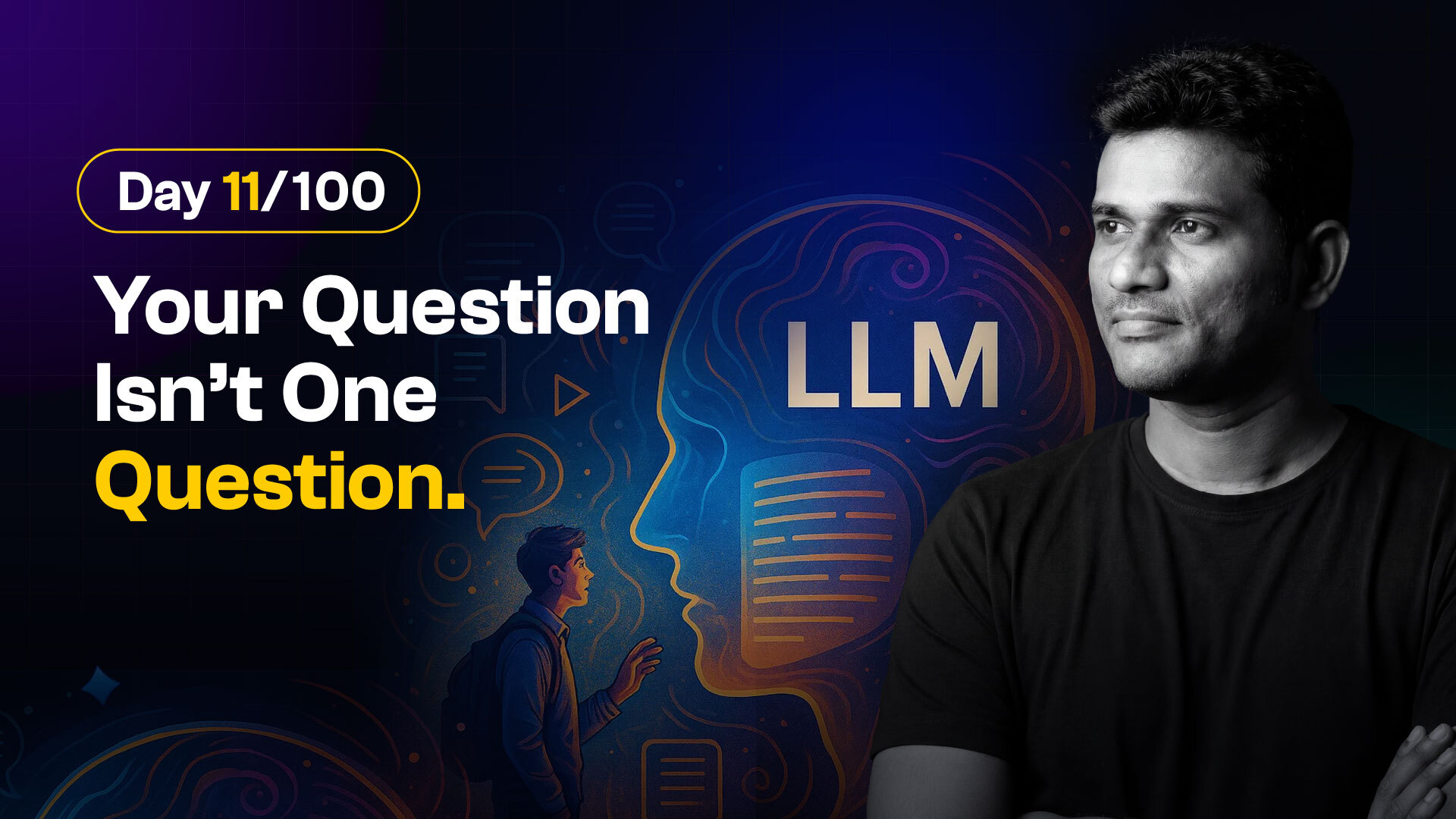
Why Good Content Fails in AI Search and What Fan Out Has to Do With It?






